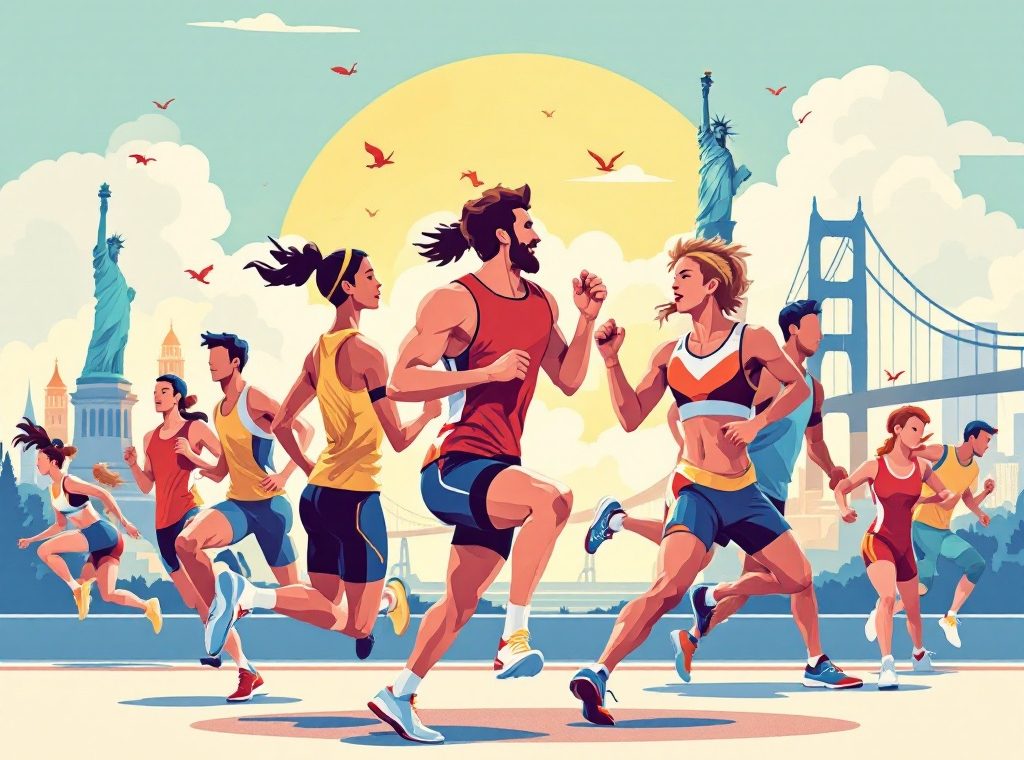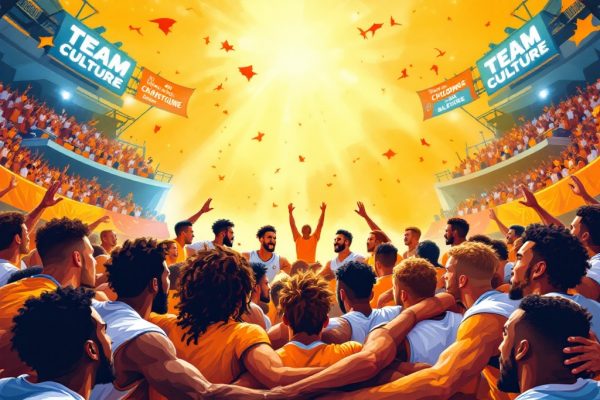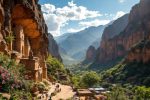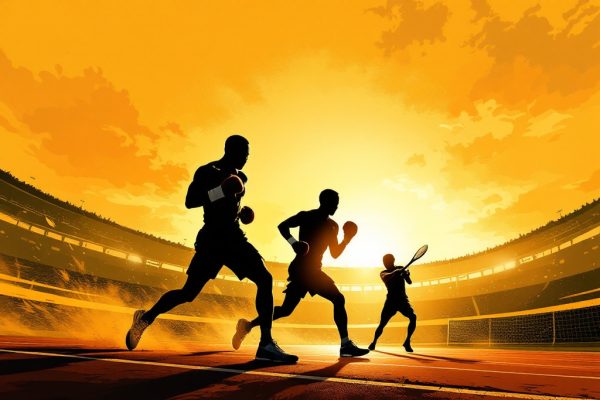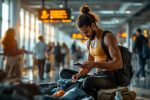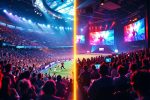Understanding Visa Requirements for International Competitions
Competing in the U.S. as an international athlete? Securing the right visa is crucial for a smooth and successful experience. This guide provides essential information on visa options, including the P-1A, B1/B2, F1, and O-1A, outlining specific requirements and eligibility criteria. Learn how to navigate the application process, avoid common pitfalls, and ensure your participation isn’t jeopardized by visa issues. Don’t let visa complications sideline your dreams – read on to prepare for your U.S. competition.
Important information
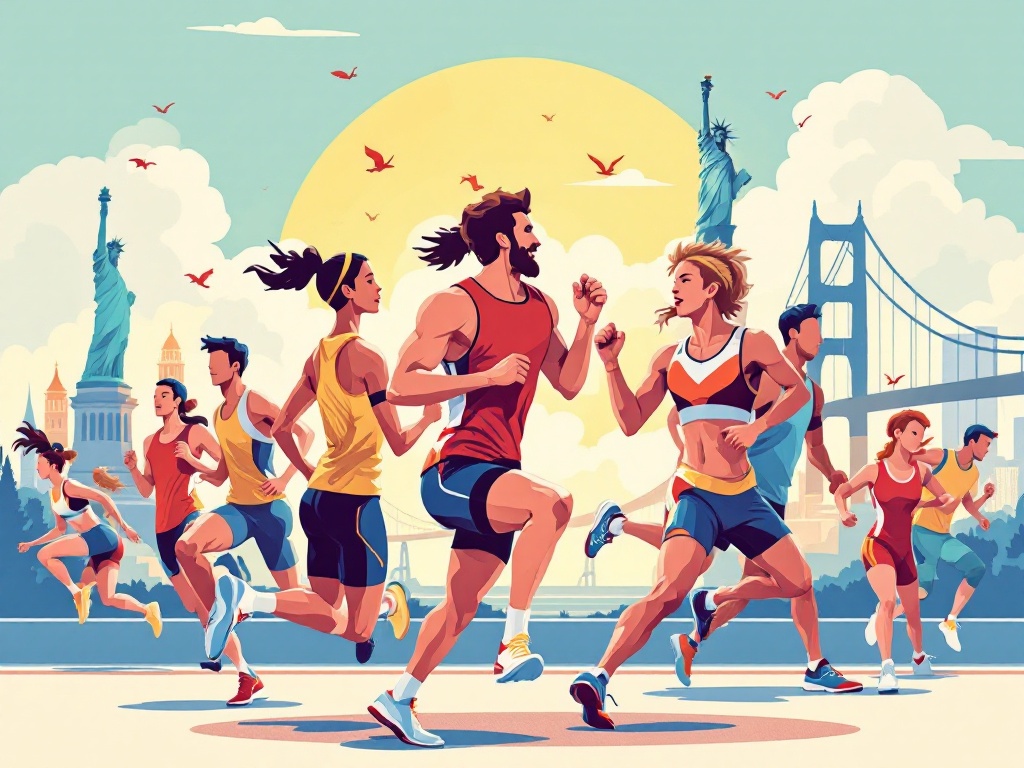
- International athletes competing in the U.S. need a visa. The P-1A visa is for internationally recognized athletes, the O-1A is for those with extraordinary ability, the F-1 is for student-athletes, and the B-1/B-2 is for short trips (but not competition).
- Early visa application is crucial. It allows time to gather documents, avoids last-minute stress, and increases the chance of a successful outcome.
- Athletes must prove their eligibility. P-1A applicants must show international recognition (media coverage, rankings, etc.). All applicants need a valid passport and supporting documents.
- The P-1A visa requires an employer, agent, or sponsor to file Form I-129 (Petition for a Nonimmigrant Worker) with USCIS. Strong evidence of international recognition is key to a successful application.
- Consulting an immigration lawyer is highly recommended. They can provide expert advice, help avoid common pitfalls, and increase the likelihood of visa approval.
Visa Requirements for International Competitions
International athletes competing in US competitions need a specialized visa for temporary entry. This visa has specific eligibility requirements.
Importance of Understanding Visa Regulations
International athletes competing in the U.S. must understand visa regulations to avoid legal complications and ensure smooth participation in events. Securing the correct visa is crucial to avoid being denied entry. Early understanding of these rules allows ample time for document gathering, preventing last-minute issues and facilitating travel planning. This preparation reduces stress and enhances the overall competition experience. Furthermore, adhering to visa requirements fosters goodwill, potentially opening doors to future opportunities. Athletes should research the specific requirements of the host country, which may include invitation letters, proof of eligibility, or sponsorship details. This proactive approach streamlines participation and contributes to their success. Understanding visa regulations early is crucial for international athletes competing in the U.S.
Benefits of Early Visa Understanding
- Avoids legal complications and ensures smooth participation.
- Allows ample time for document gathering and travel planning.
- Reduces stress and enhances the competition experience.
Key Visa Requirements
- Secure the correct visa to avoid denied entry.
- Research specific host country requirements.
- Gather necessary documents such as invitation letters, proof of eligibility, and sponsorship details.
Common Visa Types for Athletes and Teams
The P-1A visa caters to internationally recognized athletes competing at the highest levels.
Student-athletes studying and playing in a new country typically use the F-1 visa.
For shorter trips, such as training or meetings, athletes might utilize the B-1/B-2 visa, designed for business or tourism, though it prohibits actual competition.
The O-1A visa, reserved for individuals with extraordinary abilities, can also apply to athletes and even highly skilled coaches. Selecting the appropriate visa is critical and depends entirely on the individual’s specific situation.
Visa Options for Professional and Amateur Athletes
U.S. visa options for athletes vary based on their professional status and reason for visiting. Professional athletes often use the P-1A visa, while amateur athletes have more choices.
Visa Options for Amateur Athletes
For shorter competitions, the B1/B2 visitor visa allows brief stays.
Student athletes can compete while studying under the F1 student visa.
The O-1A visa is for athletes with extraordinary abilities.
Visa Options for Professional Athletes
Professional athletes frequently utilize the P-1A visa.
Step 1: Determine Your Primary Purpose
If studying is your main goal, the F1 visa is suitable, allowing competition as a secondary activity. For short trips, the B1/B2 visa is often sufficient.
Step 2: Assess Your Athletic Recognition
Some highly recognized amateur athletes might qualify for the P-1A visa. In exceptional cases, they may even qualify for the O-1A visa, designed for individuals with extraordinary abilities.
Step 3: Understand Visa Requirements
Each visa has specific requirements, including eligibility criteria, duration, and application procedures. Carefully evaluate these factors to make the best choice for your individual circumstances.
Choosing the right visa is crucial for every athlete’s unique situation.
Comparing P-1A, B1/B2, F1, and O-1A Visas
The P-1A visa is specifically for internationally recognized athletes competing in the U.S.
For students pursuing academic studies, the F-1 visa is the appropriate choice.
The B-1/B-2 visa covers short-term business trips and tourism.
The O-1A visa is reserved for individuals who have demonstrated extraordinary ability in fields like science, arts, education, business, or athletics.
Specific Considerations for Amateur Athletes
The P-1A visa allows internationally recognized amateur athletes to compete in the US. This visa is crucial for international competitions. Athletes must demonstrate their acclaimed status with supporting documentation, a key factor in successful applications. The P-1A visa also extends to entire teams and entertainment groups. Each member must meet the criteria for international recognition and provide the required documentation.
P-1A Visa: Key Aspects and Eligibility
The P-1A visa is designed for athletes participating in internationally recognized competitions in the U.S. This visa is specifically for athletes who have achieved significant national or international recognition in their sport. This recognition can be proven through various forms of evidence, such as media coverage, world rankings, endorsements, or major achievements. Athletes applying for this visa must maintain a foreign residence and not intend to immigrate to the U.S. While the initial P-1A visa covers the competition period, it can be extended in five-year increments, allowing for a maximum stay of 10 years.
Eligibility Criteria for the P-1A Visa
Athletes seeking international recognition must compete in major sporting events and verify their participation.
International Recognition Requirement
P-1A visa applicants, including athletes and teams, must demonstrate international recognition. This is essential for a successful application.
Temporary Admission and Foreign Residence Requirement
The P-1A visa allows internationally recognized athletes to temporarily enter the United States. Applicants must demonstrate their intent to maintain residence outside the U.S. The visa’s validity is tied to the specific competition’s duration, with a maximum limit of five years.
Duration and Extensions of the P-1A Visa
The P-1A visa initially allows athletes a five-year stay, which can be extended for another five years, totaling a maximum of ten years. Continued high-level performance is required for any extension.
Application Process for P-1A Visas
Have your employer, agent, or sponsor file Form I-129, Petition for a Nonimmigrant Worker, with United States Citizenship and Immigration Services (USCIS).
Include compelling evidence of your international recognition with the petition. This could include proof of participation in major events, contracts, and endorsements.
Ensure you have a valid passport.
Gather supporting materials such as invitation letters and proof of financial stability.
Apply early, as USCIS processing times vary. Consulting an immigration lawyer is highly recommended for guidance throughout the process.
Steps Involved in Filing Form I-129
To secure a P-1A visa for an athlete, their employer, agent, or sponsor must file Form I-129, the Petition for a Nonimmigrant Worker. This petition requests the necessary P-1A classification for the athlete and is a crucial step in the visa process.
Role of Employers, Agents, and Sponsors
Athletes seeking P-1A visas to compete legally in the U.S. heavily rely on employers, agents, and sponsors acting as petitioners. These petitioners begin the visa process by filing Form I-129, Petition for a Nonimmigrant Worker. This petition highlights the athlete’s qualifications, details the event, and includes essential documents. These documents include contracts, itineraries, and proof of international recognition. This support is crucial for athletes to compete and facilitates communication with USCIS. It ensures a smooth process by addressing any requests for additional information.
Documentation and Evidentiary Criteria
Athletes can demonstrate international acclaim through several key pieces of evidence. Official contracts with prominent U.S. leagues or teams are crucial for establishing eligibility. Media recognition, expert endorsements, and proof of substantial income or sponsorships further strengthen their case. Contracts with American sports organizations serve as definitive proof of their international standing.
Challenges and Considerations in Visa Applications
Navigating visa applications can be challenging. Many applicants encounter common obstacles. Inaccurate or incomplete documentation often trips people up, as does failing to meet eligibility requirements. Missed deadlines are another significant hurdle. Athletes, in particular, face unique difficulties. Their nationality and travel history can present specific obstacles, and processing delays can jeopardize their participation in competitions. Fortunately, immigration lawyers offer invaluable support, guiding athletes through complex regulations and ensuring they meet all requirements. Consulting these experts is essential. They can clarify specific visa criteria and help athletes avoid frequent mistakes, ultimately increasing the likelihood of a successful application. Seeking expert advice is a wise decision for any athlete navigating the visa process. Here’s why athletes should consult with an immigration lawyer:
Expertise in Sports Visa Requirements
Immigration lawyers specializing in sports visas possess in-depth knowledge of the specific regulations and documentation required for athletes. They stay updated on evolving immigration policies, ensuring athletes meet current criteria.
Personalized Guidance
These lawyers provide tailored guidance based on the athlete’s nationality, sport, and travel history. They offer strategic advice to overcome potential obstacles and expedite the visa application process.
Minimizing Delays
Immigration lawyers help athletes avoid common pitfalls, such as incomplete applications or missed deadlines, which can cause significant delays. Their expertise streamlines the process, maximizing the chances of timely visa approval.
Advocacy and Representation
Should any issues arise during the application process, immigration lawyers act as advocates for athletes, liaising with immigration authorities and ensuring their rights are protected.
Consulting an immigration lawyer is a proactive step that significantly increases the likelihood of a successful visa application for athletes. Their specialized knowledge, personalized guidance, and effective advocacy provide invaluable support throughout the often complex visa process.
Common Pitfalls in Visa Application Process
Navigating the visa application process can be challenging for athletes. Many encounter common pitfalls, such as submitting incomplete documentation, for example, missing financial records or invitation letters. Another frequent oversight is neglecting to meet eligibility criteria, like providing proof of international recognition for a P-1A visa. Every athlete’s case is unique, and visa regulations vary depending on nationality and the host country. These nuances can lead to frustrating delays or outright denials. Applying at the last minute further compounds the risk, as processing delays could mean missed competitions. Therefore, advance planning is crucial. Here’s a step-by-step guide to help athletes navigate the visa application process:
Start Early. Begin the visa application process well in advance of your intended travel dates. This allows ample time to gather the necessary documents and address any unforeseen delays.
Research Specific Requirements. Carefully review the visa requirements for the country you are visiting. These requirements vary based on your nationality and the purpose of your visit.
Gather all Necessary Documents. Compile all required documents, including your passport, application forms, financial statements, invitation letters, and proof of international recognition (if applicable).
Complete the Application Accurately. Fill out the visa application forms completely and accurately. Double-check all information before submitting.
Submit your Application. Submit your visa application and all supporting documents to the appropriate embassy or consulate. Pay any required fees.
Follow Up. Track the status of your visa application and follow up with the embassy or consulate if necessary. Be prepared to answer any additional questions or provide further documentation.
Immigration Assistance and Legal Support
Immigration lawyers offer crucial support to athletes navigating the visa application process. They expertly handle the intricacies of immigration law, ensuring a smooth experience. Their services include:
- Collating necessary documentation and preparing comprehensive applications.
- Representing athletes during interviews.
- Providing vital assistance should any application issues arise.
This comprehensive support simplifies what can often be an overwhelming process for athletes.
